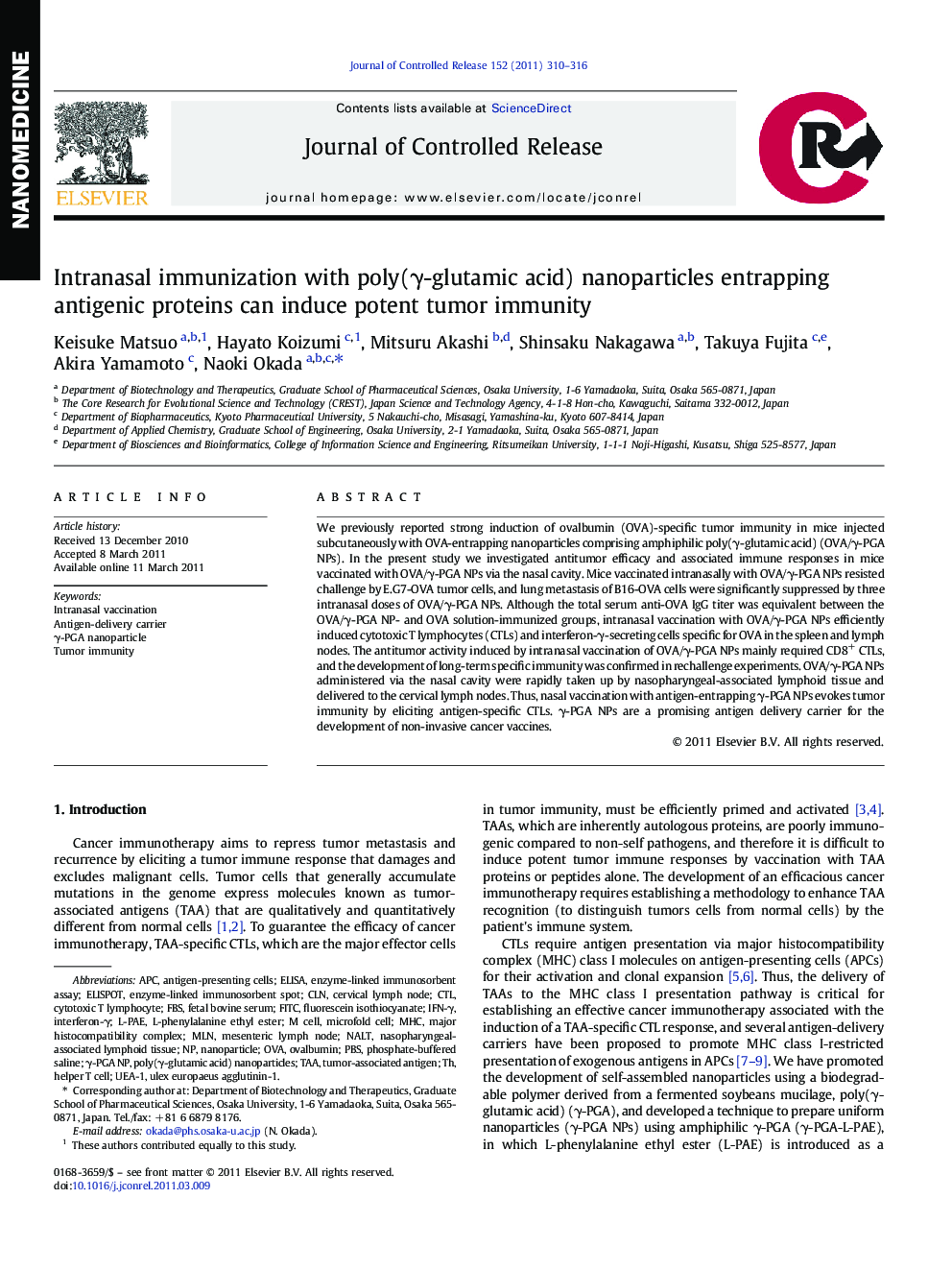| Article ID | Journal | Published Year | Pages | File Type |
|---|---|---|---|---|
| 1424762 | Journal of Controlled Release | 2011 | 7 Pages |
We previously reported strong induction of ovalbumin (OVA)-specific tumor immunity in mice injected subcutaneously with OVA-entrapping nanoparticles comprising amphiphilic poly(γ-glutamic acid) (OVA/γ-PGA NPs). In the present study we investigated antitumor efficacy and associated immune responses in mice vaccinated with OVA/γ-PGA NPs via the nasal cavity. Mice vaccinated intranasally with OVA/γ-PGA NPs resisted challenge by E.G7-OVA tumor cells, and lung metastasis of B16-OVA cells were significantly suppressed by three intranasal doses of OVA/γ-PGA NPs. Although the total serum anti-OVA IgG titer was equivalent between the OVA/γ-PGA NP- and OVA solution-immunized groups, intranasal vaccination with OVA/γ-PGA NPs efficiently induced cytotoxic T lymphocytes (CTLs) and interferon-γ-secreting cells specific for OVA in the spleen and lymph nodes. The antitumor activity induced by intranasal vaccination of OVA/γ-PGA NPs mainly required CD8+ CTLs, and the development of long-term specific immunity was confirmed in rechallenge experiments. OVA/γ-PGA NPs administered via the nasal cavity were rapidly taken up by nasopharyngeal-associated lymphoid tissue and delivered to the cervical lymph nodes. Thus, nasal vaccination with antigen-entrapping γ-PGA NPs evokes tumor immunity by eliciting antigen-specific CTLs. γ-PGA NPs are a promising antigen delivery carrier for the development of non-invasive cancer vaccines.
Graphical abstractFigure optionsDownload full-size imageDownload as PowerPoint slide
